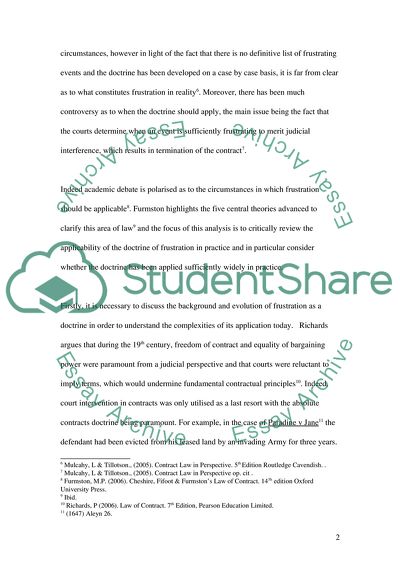Cite this document
(“The Doctrine of Frustration Essay Example | Topics and Well Written Essays - 2500 words”, n.d.)
The Doctrine of Frustration Essay Example | Topics and Well Written Essays - 2500 words. Retrieved from https://studentshare.org/social-science/1717158-law-of-contract-research-essay
The Doctrine of Frustration Essay Example | Topics and Well Written Essays - 2500 words. Retrieved from https://studentshare.org/social-science/1717158-law-of-contract-research-essay
(The Doctrine of Frustration Essay Example | Topics and Well Written Essays - 2500 Words)
The Doctrine of Frustration Essay Example | Topics and Well Written Essays - 2500 Words. https://studentshare.org/social-science/1717158-law-of-contract-research-essay.
The Doctrine of Frustration Essay Example | Topics and Well Written Essays - 2500 Words. https://studentshare.org/social-science/1717158-law-of-contract-research-essay.
“The Doctrine of Frustration Essay Example | Topics and Well Written Essays - 2500 Words”, n.d. https://studentshare.org/social-science/1717158-law-of-contract-research-essay.


